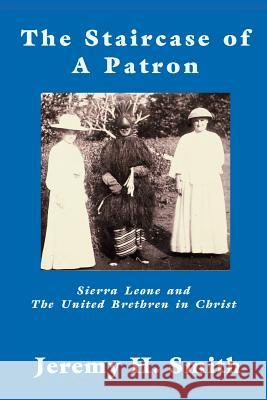The Staricase of a Patron: Sierra Leone and the United Brethren in Christ » książka
The Staricase of a Patron: Sierra Leone and the United Brethren in Christ
ISBN-13: 9781609470166 / Angielski / Miękka / 2011 / 330 str.
The Staricase of a Patron: Sierra Leone and the United Brethren in Christ
ISBN-13: 9781609470166 / Angielski / Miękka / 2011 / 330 str.
(netto: 161,04 VAT: 5%)
Najniższa cena z 30 dni: 168,17 zł
ok. 16-18 dni roboczych
Bez gwarancji dostawy przed świętami
Darmowa dostawa!
This study focuses on the United Brethren in Christ, an important church tradition which began as a pioneering movement of interdenominational revitalization in the decades immediately following the first Great Awakening in eighteenth century America. Its ministry in Sierra Leone West Africa is generally recognized as establishing the most influential and vital Christian presence in that former British colony that had been a key cog in the eighteenth century British slave trade. Jeremy Smith's treatment of his subject comes from a quite different angle of interest from previous scholarship on the subject. Drawing from the philosophical pragmatism of William James and the phenomenology of Husserl, among others, he probes the dynamics of what it means to inculcate a "sense of the life of living beings around us from within," as seen in the context of the missionary work of Lloyd Mignerey, an early twentieth century American UB missionary to Sierra Leone. Here is the first treatment of this key mission in the development of indigenous Christianity among West African tribal society that approaches its subject from an epistemological perspective. In doing so, it honors the faithful missional efforts of Mignerey and the hundreds of others who served in that important UB mission field for almost 160 years. Yet, in addition to that, it also contributes to a larger discussion of what religious dynamics are involved in the deeper quest for God that transcends the limitations of religious language and social ethos. Viewed in the ethos of the United Brethren in Christ, this was also a quest for the new humanity that is formed out of the Christian experience of Pentecost-a theme to which the United Brethren explicitly appealed in their missional self-understanding. Viewed from that perspective, this sensitive study also contributes to the deeper meaning of Christian revitalization.











